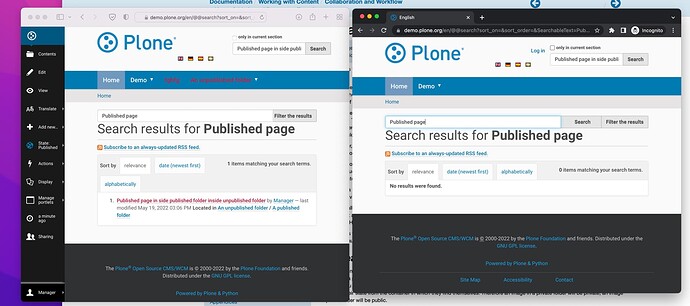I'm using plone 5. Specifially 5.2.2 but I think this has been an issue for a few versions now.
I have imported lots of data. on one of my smaller sites I have 80k objects in total, and under a specific folder have 3k objects. When the import completes, the folders are not in a published state.
When I select "Publish" to publish this folder, I have to wait a significant amount of time before plone returns. Even after going into advanced settings and making sure that 'Include contained items' is unchecked.
a folder with 4,229 objects: 58.8 seconds
I would assume this would be a fast transaction - just one object is having a workflow transition. But it takes forever.
Anyone also experiencing this? Any suggestions on how to speed this up?
I noticed reindexObjectSecurity being called on every subobject.
<FSControllerPythonScript at /RFA/english/multimedia/content_status_modify>
Line 50
Module Products.CMFCore.WorkflowTool, line 252, in doActionFor
Module Products.CMFCore.WorkflowTool, line 544, in _invokeWithNotification
Module Products.CMFCore.WorkflowTool, line 610, in _reindexWorkflowVariables
Module Products.CMFCore.CMFCatalogAware, line 116, in reindexObjectSecurity
Module Products.ZCatalog.CatalogBrains, line 64, in _unrestrictedGetObject